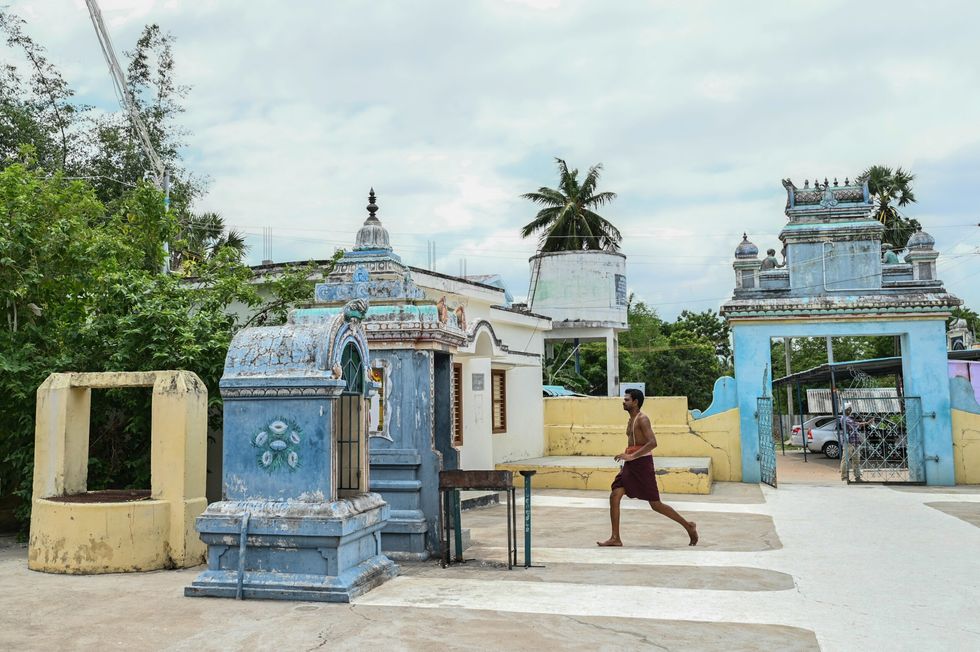The god of truth and righteousness is supporting the Democratic Party in this year's US presidential election, according to Hindu priests in Kamala Harris' ancestral Indian village.
A single narrow road lined with coconut trees leads to Thulasendrapuram, a village surrounded by paddy fields in Tamil Nadu and once home to Harris' maternal grandfather.
A large picture of the smiling Democrat stands at the village entrance near its main temple, a sprawling structure with a towering, decorated gate.
Community prayers began the day after president Joe Biden withdrew from the race, paving the way for Harris to ascend to the top of the ticket, and are expected to continue daily until voting day.
Hours after sunrise, head priest M Natrajan, dressed in a sarong, offered sweets and rice pudding to Dharmasastha, the Hindu god of truth and righteousness, to whom the centuries-old temple is dedicated.

"We prayed for her, and she became vice-president," the 61-year-old priest told AFP. "With the blessing of our all-powerful deity, we are confident she will now become president too."
Another large image of Harris stands outside the temple's gates, adorned with intricate artwork, and dozens of villagers gathered there.
The scale of the prayers will increase as the elections approach, said Natrajan, who also works as a veterinarian at the nearby animal dispensary.
Harris' name appears on a list of donors on one of the temple walls, but she has not visited the village since being sworn in as vice president in 2021.
"This time if she wins again, the celebrations will be grander than anything the village has ever seen," the priest said. "After becoming president, she must visit."
The offerings were "donated by the people of the village," said J Sudhakar, 50, an influential local leader whose wife is the local councillor. "It is a collective effort of everyone in the village for one of our own."
Village reaps benefits from Kamala Harris' high profile
Harris' maternal grandfather PV Gopalan left the village decades ago, but residents say the family has maintained close links and regularly donated to the temple's upkeep.
Harris, 59, was born in California but was often taken to India by her mother, breast cancer specialist Shyamala Gopalan, and has spoken about the influence of her maternal grandfather. She has a diverse religious background—she is a Baptist, while her husband is Jewish.
Government employee Vijay Kumar insists the village has benefited from Harris' high profile. A local commercial bank donated 10 million rupees (£92,547.7) to rejuvenate a long-dead reservoir in the area. "They did that only because of Kamala Harris' association with our village," the 59-year-old said.
But even before she seeks to become leader of the world's most powerful country, Harris faces demands from a constituency continents away. "Only the very bright can go to America, but if she can get some companies to open in our area, our kids can work there," said Sudhakar, the local politician.
And farmer T Selvi, 53, added: "She was vice president, and now she will become president, but she should do something for us too. What is the point otherwise?" (AFP)




